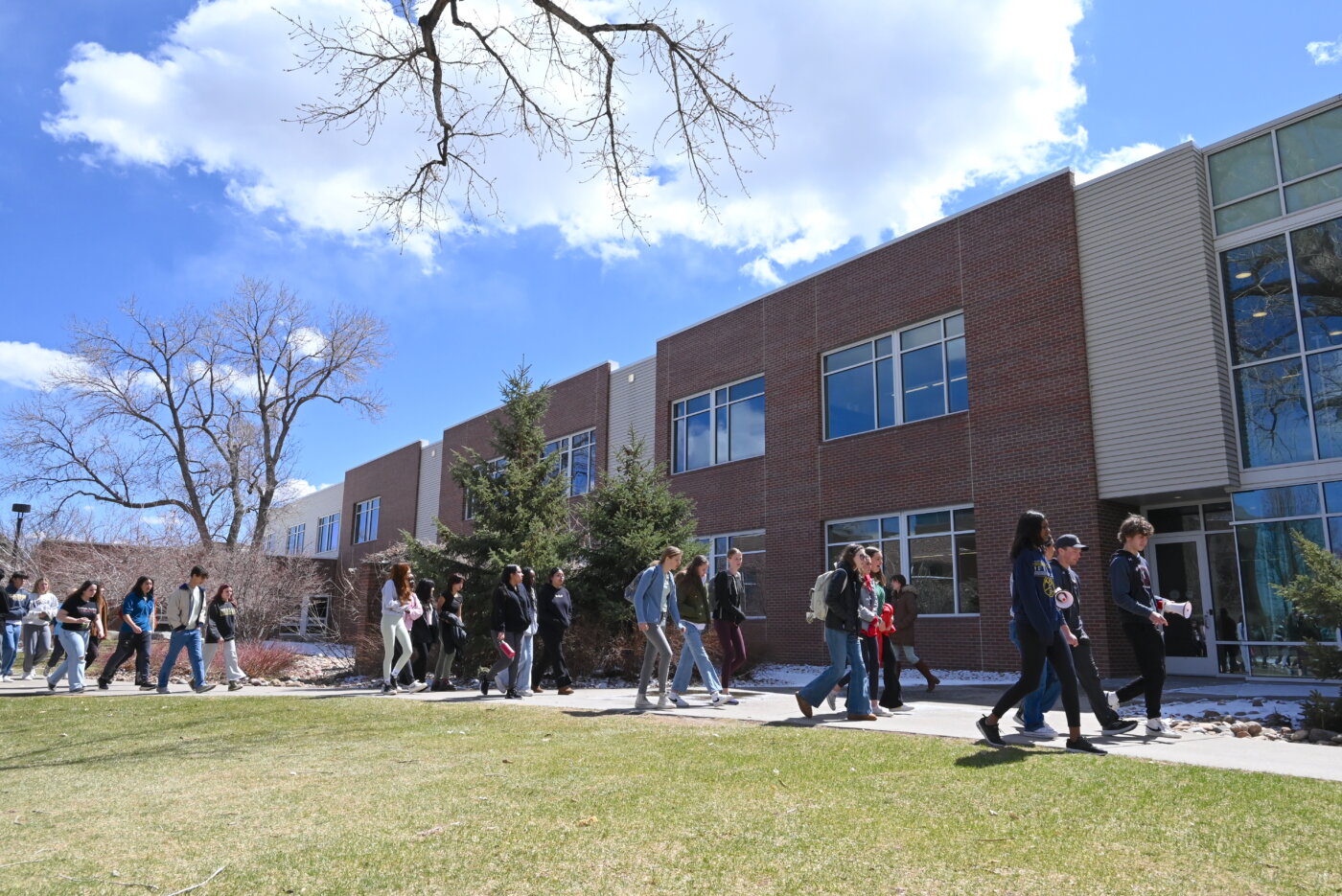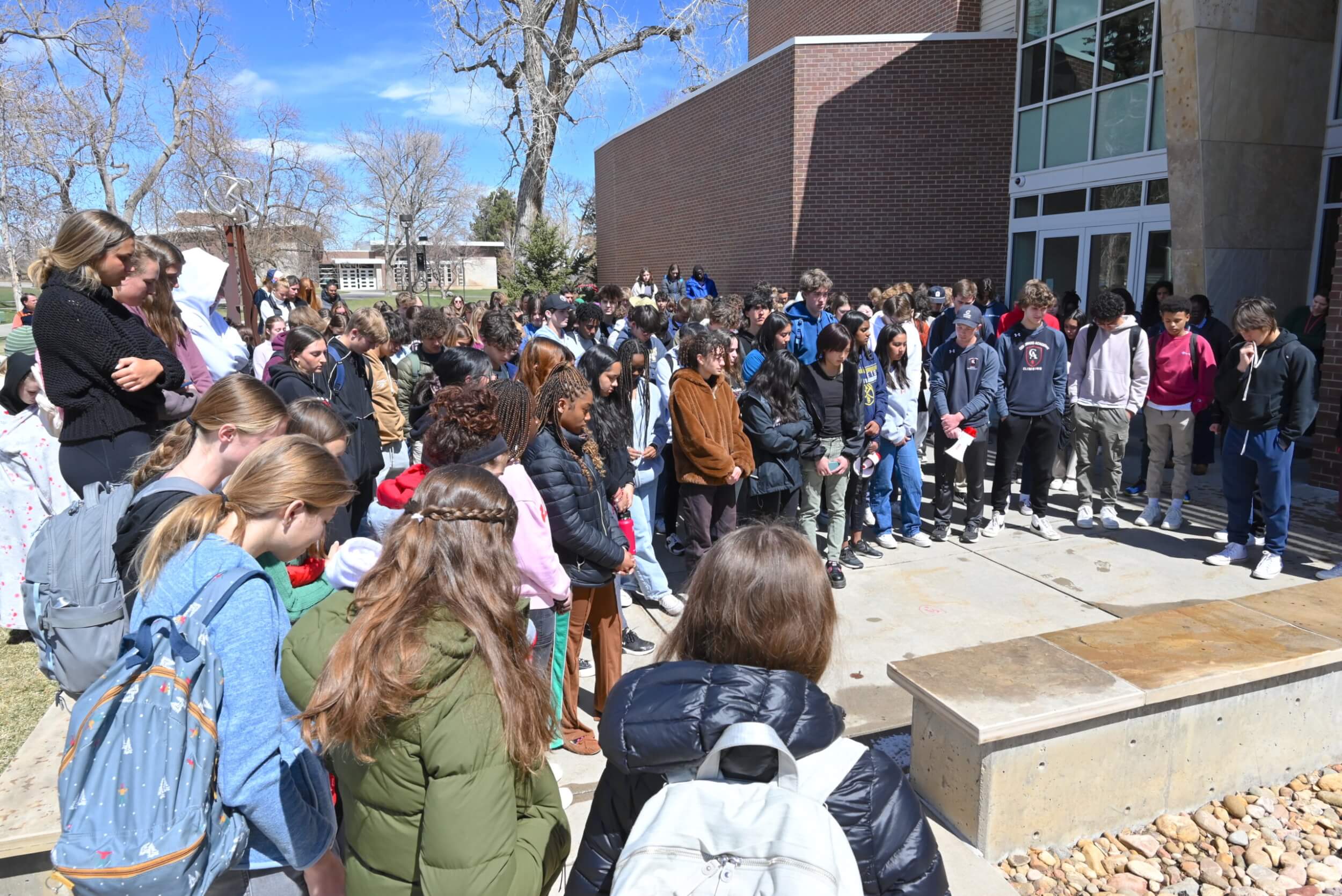Hundreds of Upper School students walked out of class at Colorado Academy on April 5, 2023, to condemn gun violence in schools and other institutions, a protest meant to coincide with similar events across the country that had been organized to prompt action from all levels of government. “We are walking out because we have to ask ourselves, how many more kids have to die in our schools before our lawmakers act?” said one of the walkout’s Senior organizers, Ana Yáñez, as she addressed the Ninth through Twelfth Graders who were gathered in front of the Upper School. “We all deserve to be safe from gun violence.”
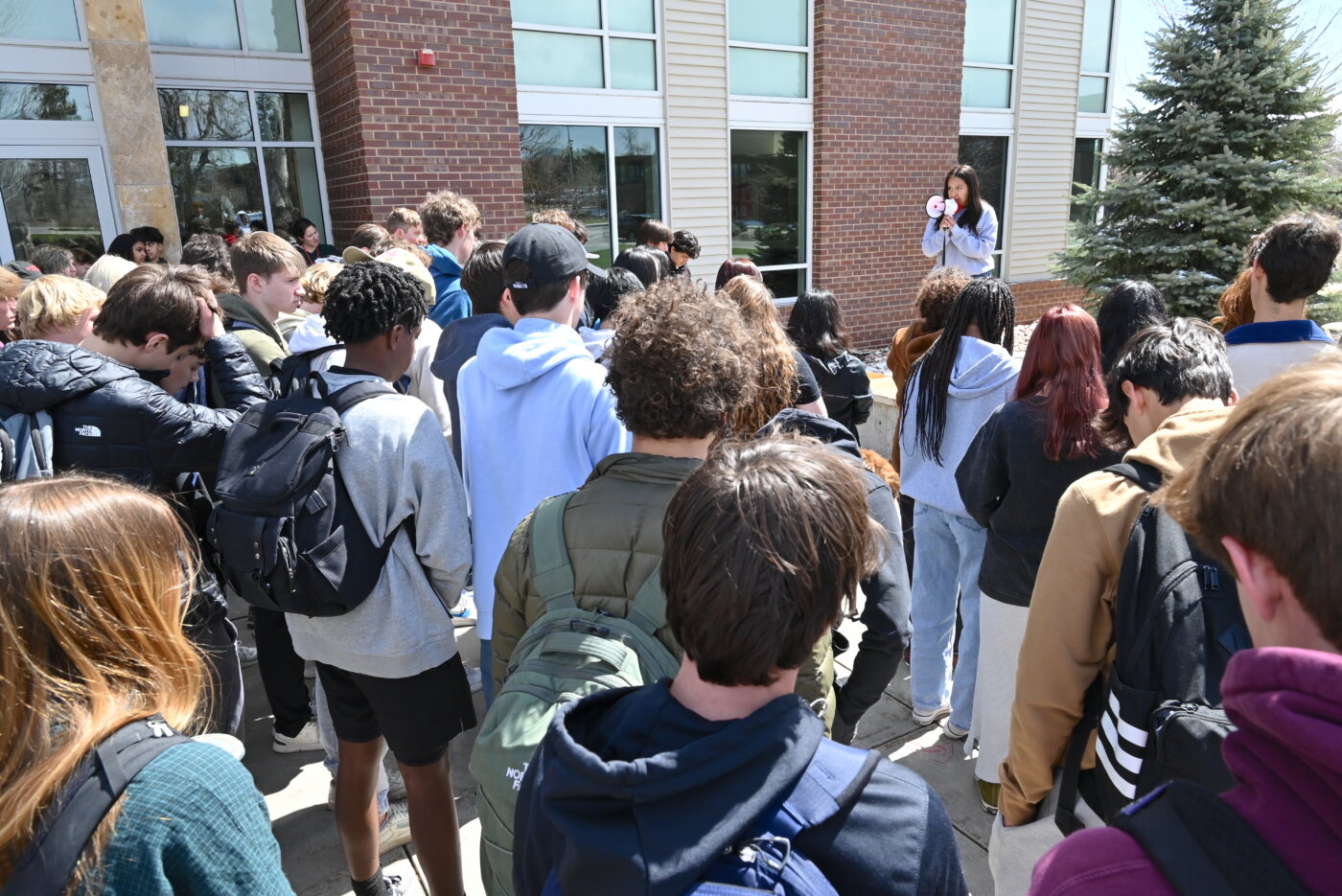
The CA demonstration, like those that took place simultaneously at more than 200 other schools nationwide, was inspired by Students Demand Action, a youth activist organization that has termed today’s young people the “school shooting generation” and that works to end gun violence by advocating for common-sense gun safety laws. Every day, according to the group, more than 110 Americans are killed with guns, and more than 200 are shot and wounded. Just as shockingly, firearms are the leading cause of death for American children and teens.
These facts were not lost on the CA event’s organizers, who, alongside Yáñez, encouraged fellow students to use their voices to push for change. Their calls to action were coming just days after three students and three adults were killed at a private school in Nashville, and only weeks after two administrators were shot at Denver’s East High School while attempting to confiscate a student’s gun. CA’s Amnesty International club, Faces of Diversity group, and Gender Sexuality Alliance together supported the walkout in response to these and so many other incidents of violence.
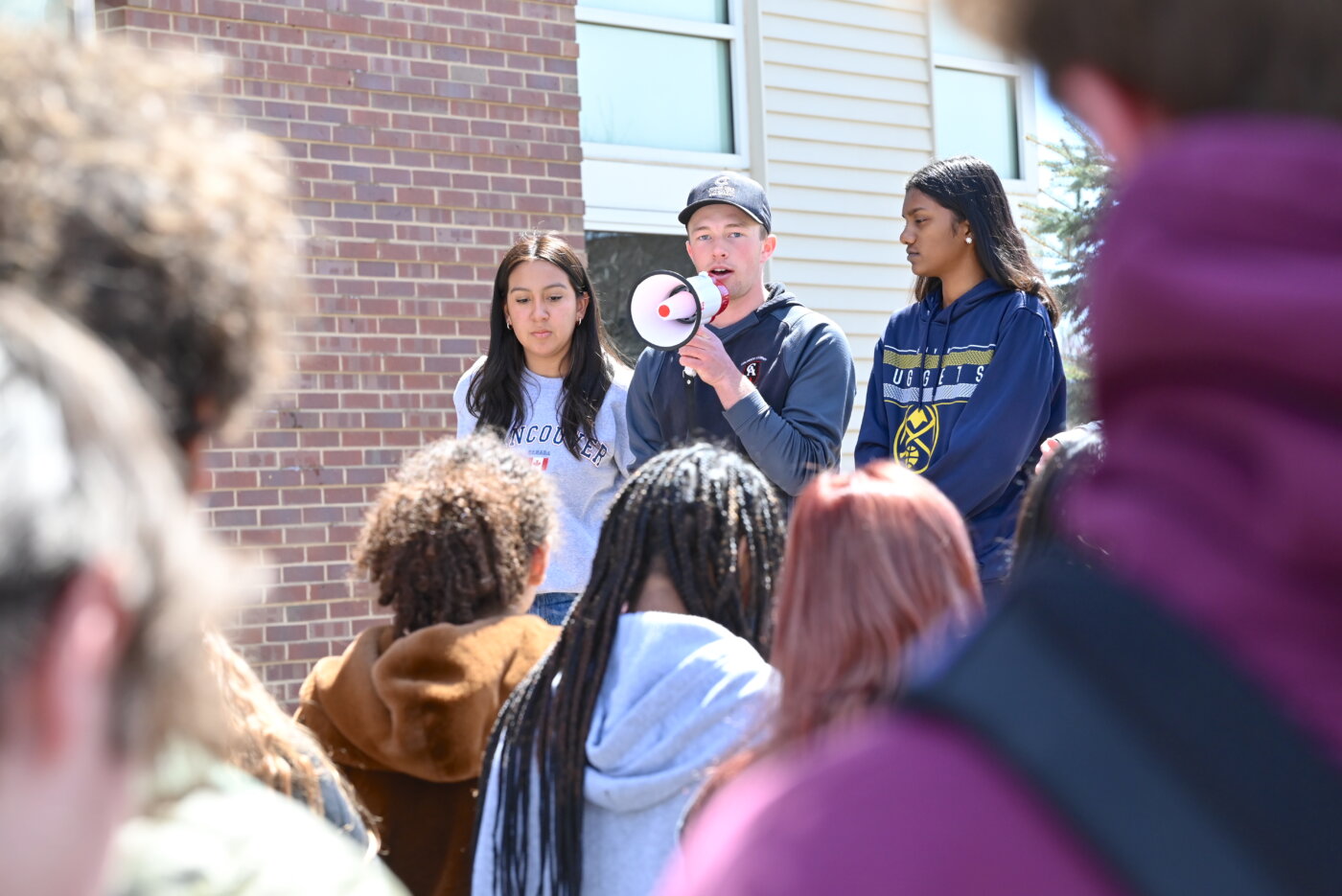
“Last school year was the deadliest on record,” explained JT Timmers, a leader of the Amnesty International club who helped to organize the walkout. “We saw a historic and devastating number of incidents of gun violence. We are walking out today to build safe, positive school environments where students can thrive. We need to address gun violence wherever it affects students. Every single instance of gunfire that children are exposed to impacts their ability to learn, grow, and develop.”
“Systemic inequities across institutions and generations of racial discrimination have exacerbated this public health crisis,” noted Yáñez, “creating a disproportionate impact on marginalized communities.”
Joe MacDougall, another of the event’s organizers, added, “We know that transgender and gender-nonconforming people are far more likely to be victims of gun violence.”
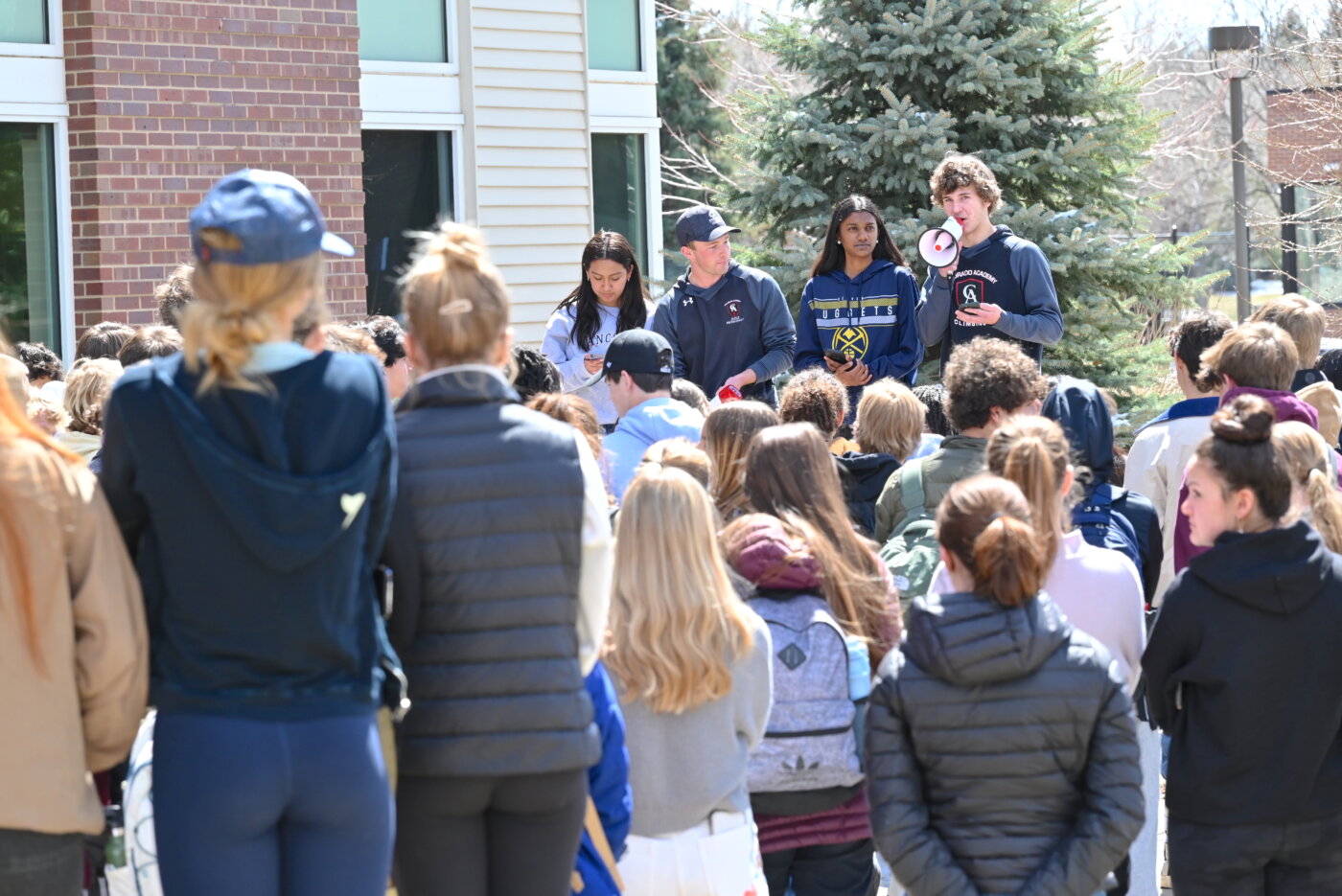
The fourth walkout organizer, Maya Vendhan, said, “We have to make sure lawmakers know that we need better gun laws at all levels. We know this work takes all of us, and that is why we are campaigning to make sure that when we walk into school, we are guaranteed to walk out.”
Students’ experiences with gun violence
Participants in the demonstration were invited to share their own experiences with gun violence, and first to speak was Sophomore Tiffany Hernandez, whose close friend, 16-year-old Luis Garcia, was wounded in a February shooting outside of East High School and later died from his injuries.
Pausing to collect her emotions before addressing her fellow students, Hernandez told listeners that Garcia was not the only one of her loved ones to fall victim to gun violence. Two childhood friends had been killed in 2022, and this March, another friend had been hospitalized after being shot.
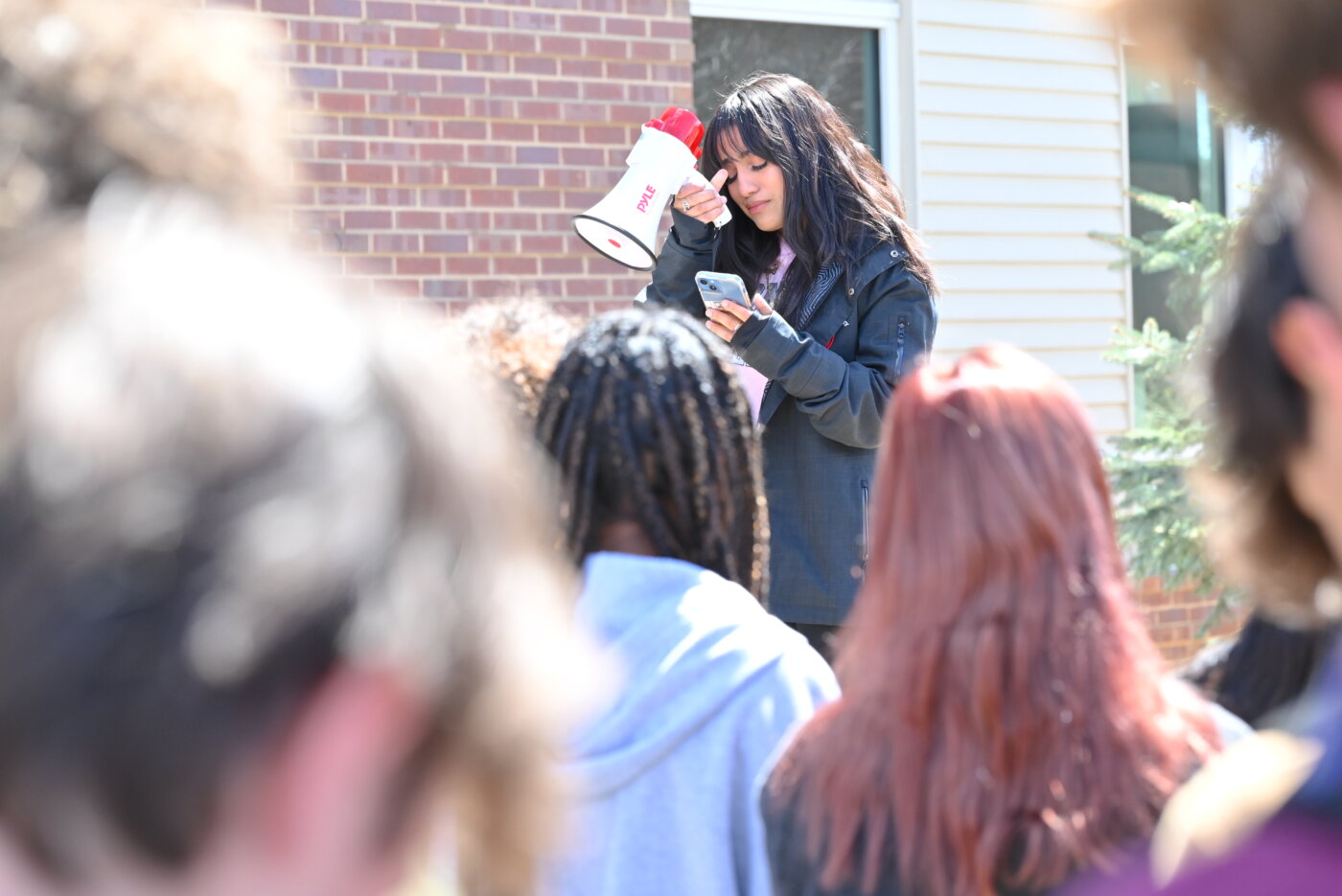
“I live every day angry, upset, and depressed. I’m only 16 and I’ve already had to bury three of my friends who never got to start their lives,” she said.
“It’s not about gangs, it’s not about the crowd you hang out with, it’s about gun control,” Hernandez continued. “It’s about the fact that kids are getting access to guns, and not access to the help that they need. Police on campus, backpack searches, pat-downs, metal detectors—these won’t change anything. We’ve seen it enough and we’ve said it enough. We have to end gun violence.”
Next Junior Tuhin Sur took the megaphone to recount his experience of being nearby when one student was killed and eight others injured during the 2019 shooting at STEM School Highlands Ranch.
“I knew many of the victims, and being so close to it was a moment of realization that all of these stories that we hear about school shootings are a part of our lives now. It was life-changing to think about coming home from school one day and not seeing the people you were close to.”
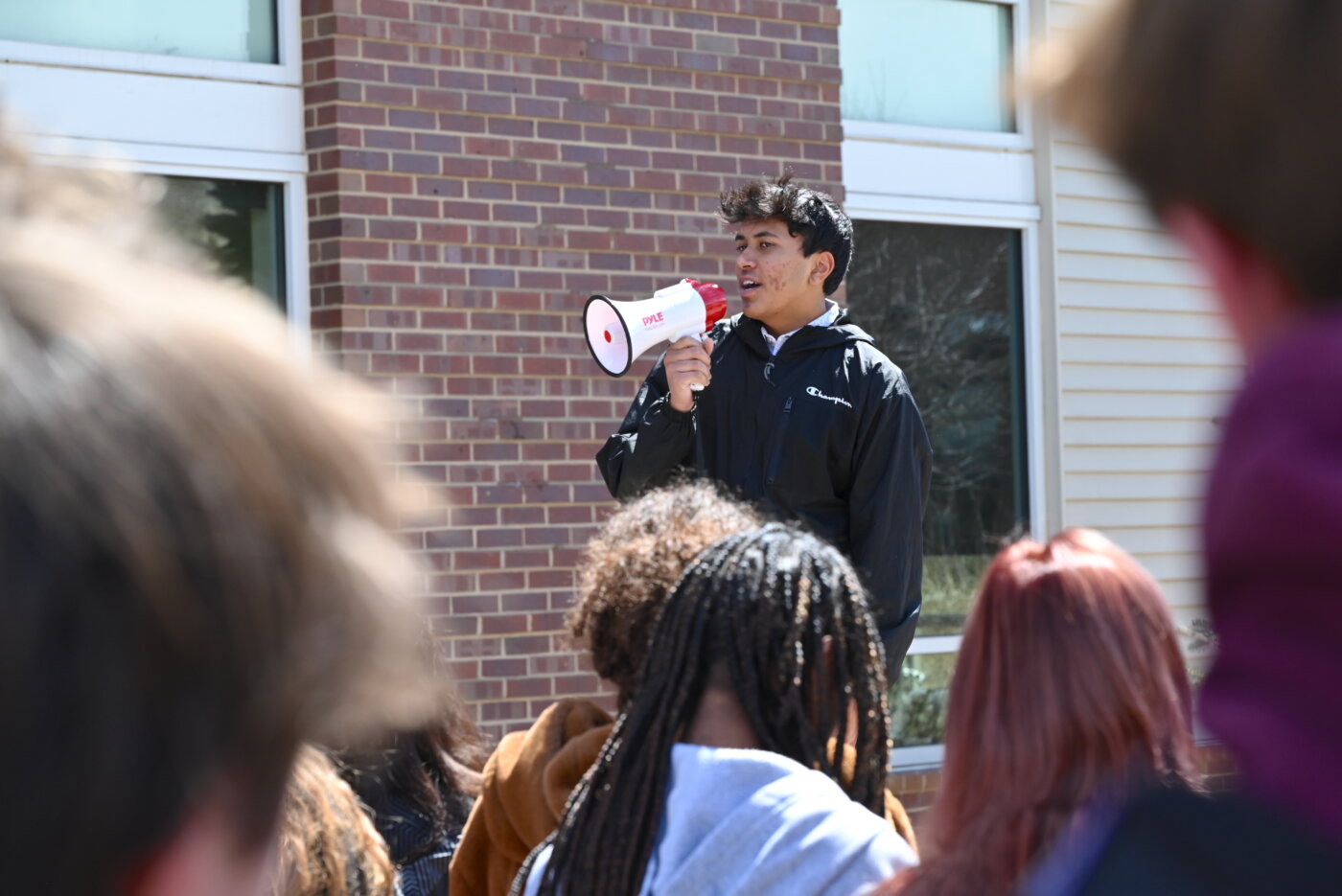
Sur went on, “Students need to be able to go to school and expect to be safe. At CA we are very privileged to have such excellent security measures in place, but not everyone has that. Now is the time to take action for change—this is where that should start.”
Those words were echoed by the next student speaker, Junior Bela Chaudhuri, who acknowledged, “I don’t have any direct experience with gun violence, and I’m grateful for that, but it still scares me every day to think that somebody has access to such a terrible weapon and has lived a life where they feel that they need to use it in such a vulnerable place. We come to school to learn, and it makes me sad that we live in a country where gun violence is such a prevalent issue.”
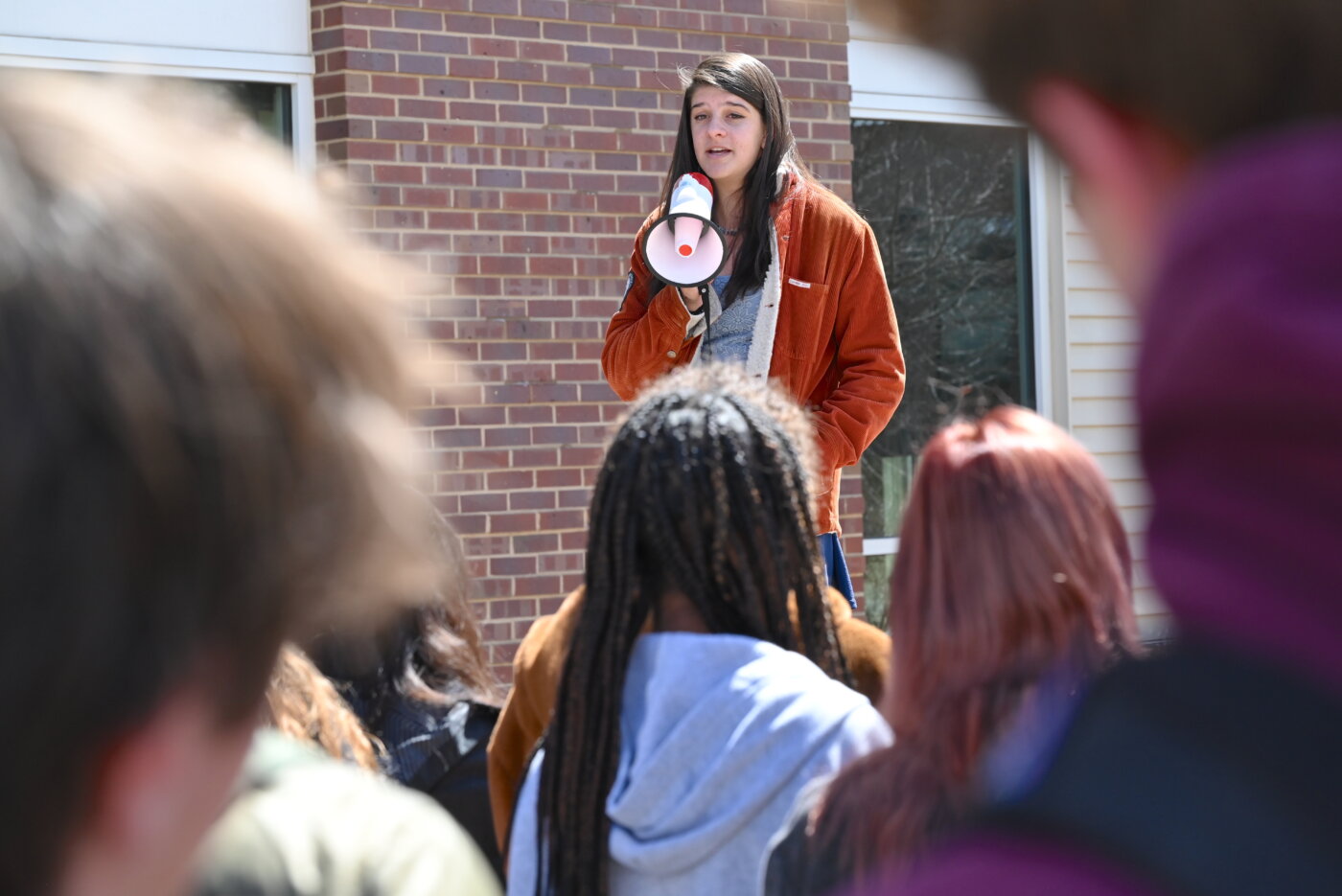
Chaudhuri continued by pointing to new laws and legislative attempts to ban books, limit the rights of LGBTQ+ people, and whitewash American history. “It’s our generation that’s going to stand against these things, and it makes me hopeful that we are all standing out here together.”
When Junior Domonique Megginson stood next to share her story, she stressed the importance of awareness and empathy in any discussion of gun violence.
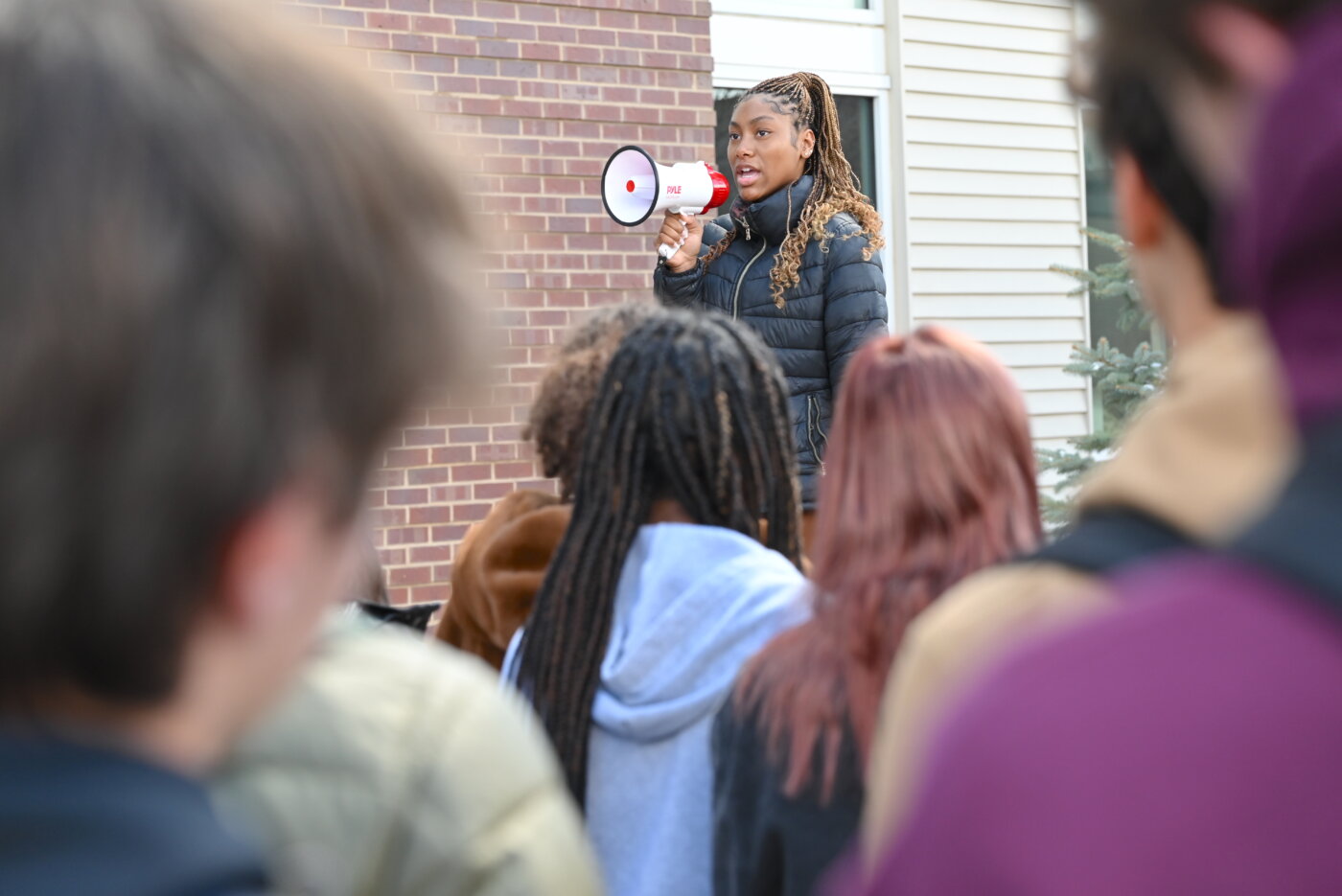
“In the last two years I’ve known eight teenagers, all my age or younger, who have died from gun violence,” she told the audience. “It’s become normalized. But then I come into different communities, like this one, and people don’t understand the struggle that I come from. When I go home to my community that’s 45 minutes away from here, I have to experience people my age who are dying, and no one tries to help or seems to care.”
“It’s our responsibility as a community to be aware of that,” Megginson continued. “We’re not all the same; we don’t all come from the same struggles. It’s important to empathize with those people who are living with gun violence. Because I come to school every day hurting, and there are lots of people like me who are hurting. I come to school knowing I’m going to graduate, but some of my friends are not.”
Senior Zoe Cope followed Megginson to recount her experience of being at a gathering of friends where gunshots were fired, and expressed her grief at hearing the stories of her fellow students. “I could not be more sorry that some of you are here every day but are surrounded by terror that we can’t seem to address. But I want to acknowledge that we have to keep fighting and showing up and making our voices heard.”
Sophomore Aziza Diallo then described hiding from an active shooter when she was in elementary school. “He was close enough that I could hear the gunshots; my friends and I were on the floor. And it makes me so incredibly angry that we had to go through that experience when we were so young. It frustrates me that our government doesn’t seem to take students’ and teachers’ lives into consideration.”
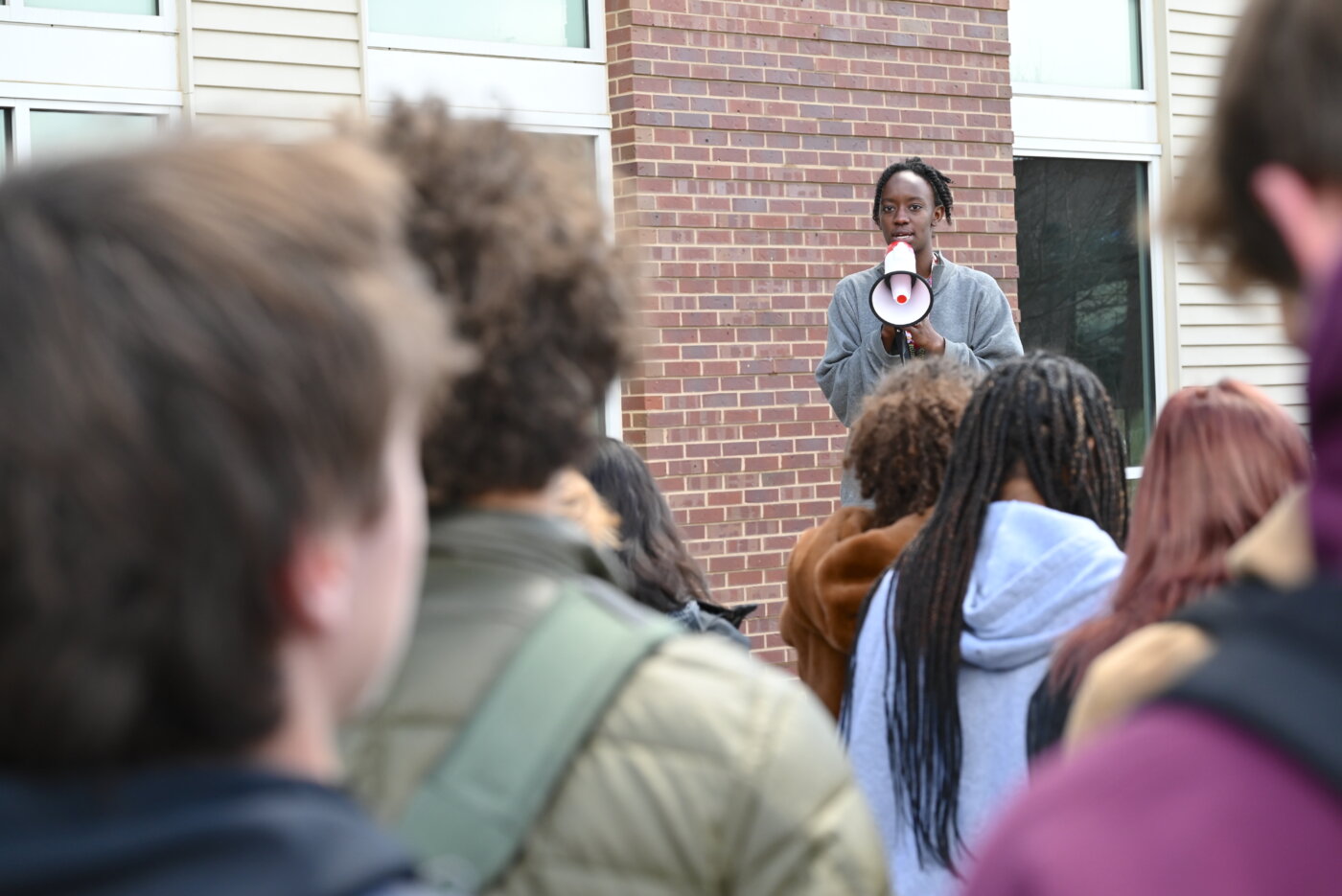
“We have to remember,” Diallo added, “that teenagers are on both sides of the gun. We need to help each other.”
Senior Desi Silverman-Joseph echoed that statement in reminding listeners about the mental health issues often at the root of school violence—especially those faced by men. “The majority of school shootings are perpetrated by men, and in addition to better regulations, we also need to make it easier for all people, and especially men, to talk about their struggles with mental health and get the help that they need, so that pain and anguish aren’t channeled into violence.”
Conversations that lead to action
When walkout leaders returned to the front of the audience, they shared their own stories.
Yáñez related that her parents, who both work in public schools, face the potential of gun violence every day. Her father, a dean, has had to confiscate guns from students, and her mother, a front desk staff member who helps to monitor the entrance doors, has had to stop students from bringing guns into school with plans to commit violence. “I’m scared every day that my mom’s not going to come home,” said Yáñez.
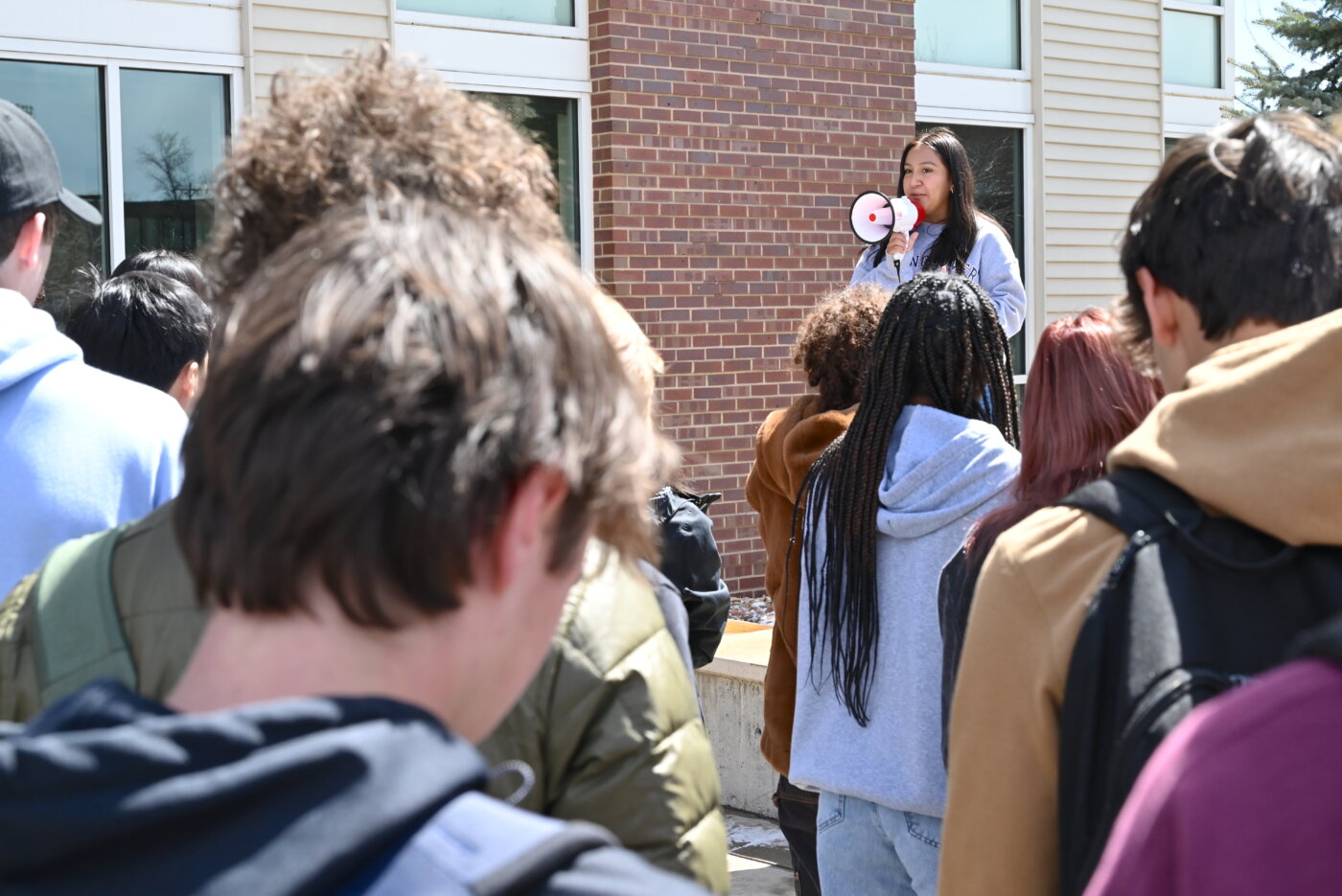
Vendhan, who attended STEM School Highlands Ranch before coming to CA, referenced the aftermath of the 2019 shooting there. “Rather than talking about what support and resources were needed to address the problem of gun violence head on, the response to the violence was very politicized. But these issues are not political. When it comes to people’s lives being lost, it’s not a political issue anymore. It’s something that we all need to work on together.”
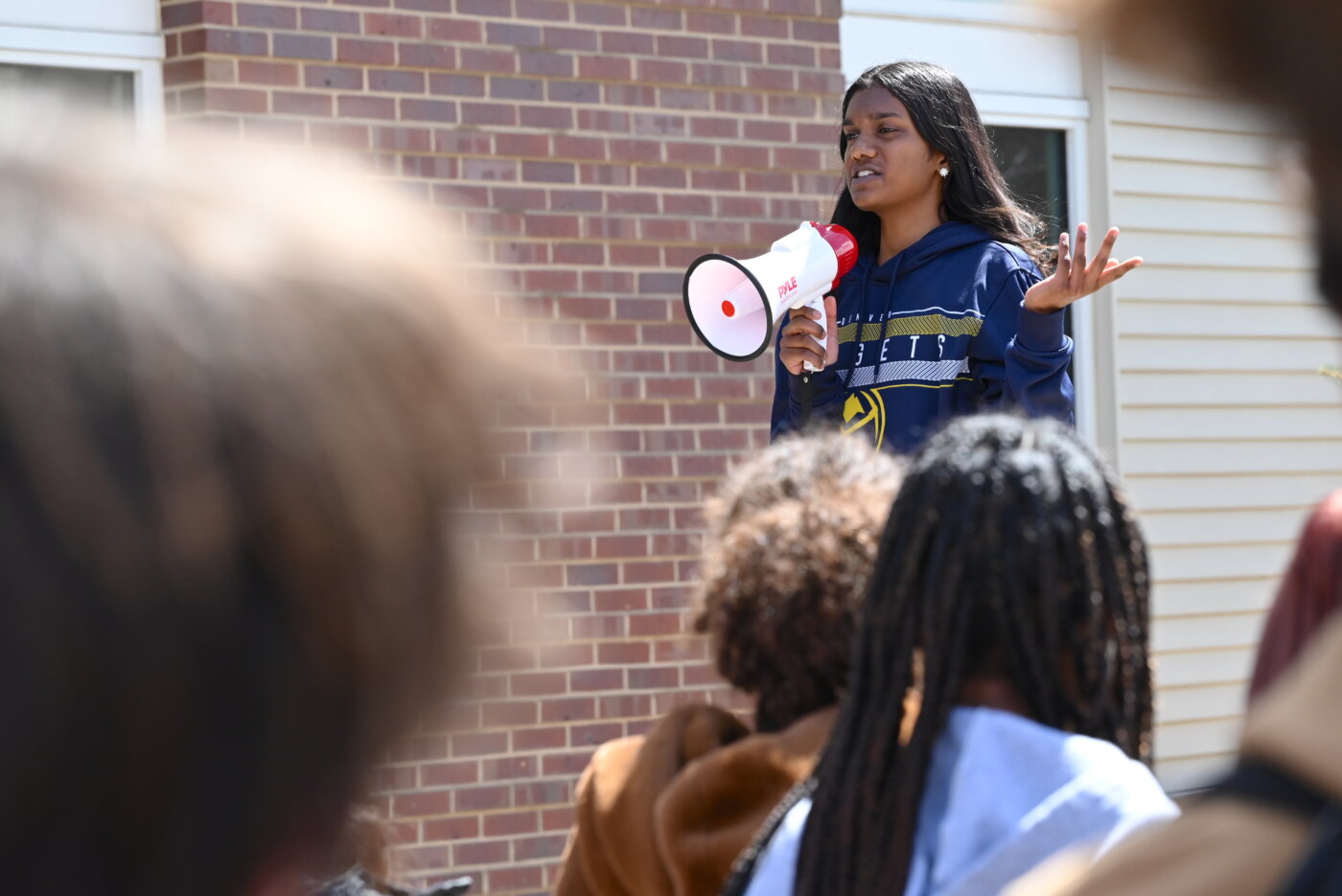
Event organizers invited students to join in a moment of silence “to honor the victims of shootings that have happened in our community and around the country,” as Timmers explained, and then they encouraged participants to walk a circle around the Upper School and talk with a peer about what actions they might take to help combat gun violence.
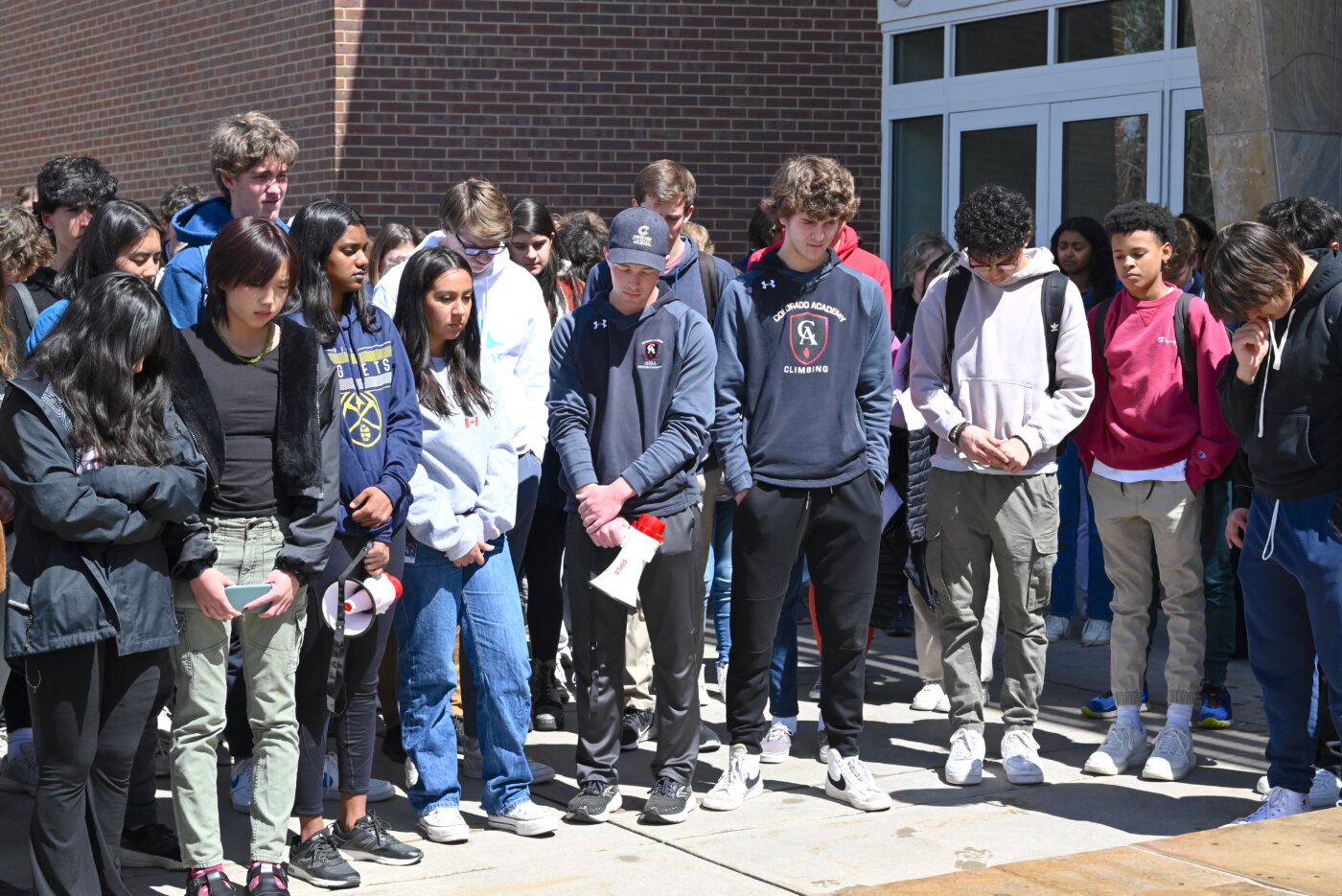
“This isn’t just one day where we walk out and then we stop thinking about the issue,” said Timmers. “It continues.”
